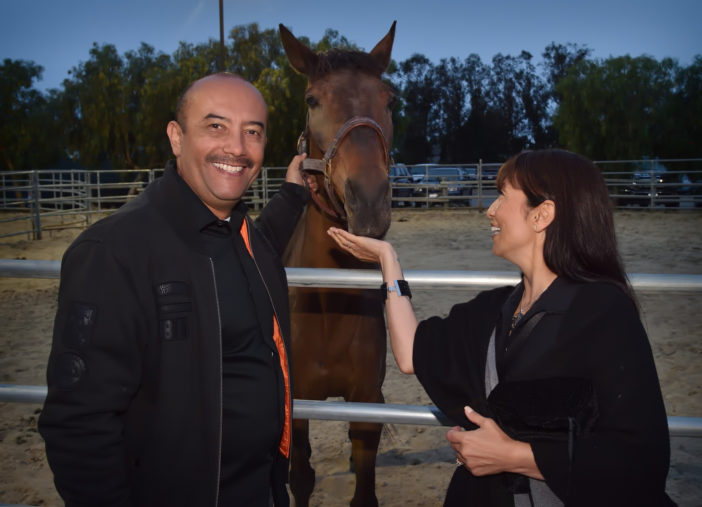Near 10 a.m. Jan. 31, Los Angeles Police Officer Robert Yanez responded to a call regarding a possible horse theft in progress in the area of the Watts Towers in Los Angeles.
A man had a rope around the horse and was walking the animal toward Wilmington Boulevard, according to the dispatch report.
Once Yanez found them, he learned the man was trying to help the horse get to safety.
“The male stated that he saw the horse running on Wilmington Boulevard dodging vehicles, and people throwing items at [the horse],” Yanez said. “He didn’t want to see the horse get hurt.”
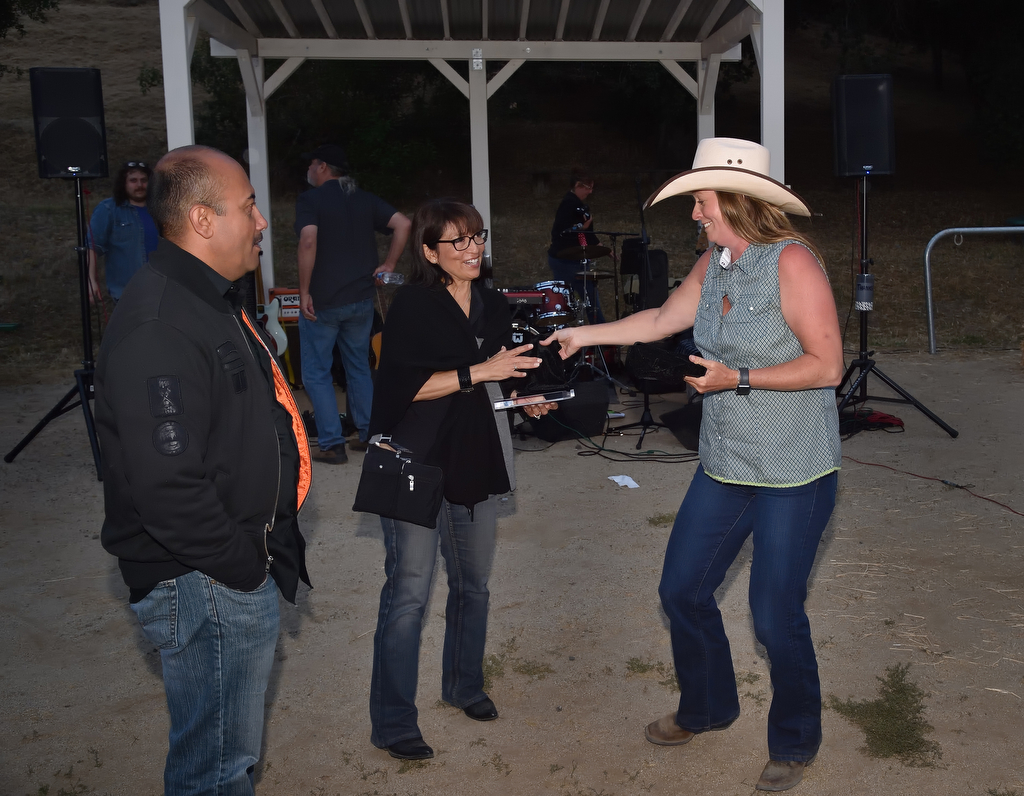
Kelley Chaplin, fundraising coordinator for Hanaeleh, right, presents Los Angeles Police Officers Robert Yanez, left, and Sonia Dibell with the Horse Hero Award for their efforts in saving a horse found wandering the streets of Watts, during a Hanaeleh fundraiser in Orange.
Photo by Steven Georges/Behind the Badge
The horse was soaked from heavy rain and the thunder was upsetting him.
“[He] appeared [to]be very underweight, was bleeding from his rear left heel and had a metal wire in his hair behind his ears,” Yanez said. “[The horse] did not want to be near humans, including myself. The man and I were able to contain him in a vacant lot and place a cover on his back to keep him warm and dry.”
But that was just the beginning of rescuing the horse, who has since been named Lou Dillon. Yanez was concerned he was being abused by his owner, so while he waited for the county animal services trailer to arrive, he made calls to coworkers who are frequently involved with rescuing animals, including LAPD Officer Sonia Dibell.

Los Angeles Police Officers Robert Yanez, left, and Sonia Dibell tell the story of the day they found a horse, Lou Dillon, wondering the streets near the Watts towers and the efforts put in by those who rescued him, during a fundraiser for Hanaeleh, an Orange County organization that rescues and rehabilitates abused and neglected horses.
Photo by Steven Georges/Behind the Badge
Dibell is known as a bit of an animal whisperer at the station. When she heard the horse was at risk of being put down, she had to help.
“That’s why I got involved, and I started reaching out to people I know in the horse community,” Dibell said.
Dibell, of Fullerton, compiled a list of possible horse rescues and started calling.
“I was heartbroken,” she said. “Everybody was either, they’re full, they can’t take another horse. … The horse was in pretty bad shape, he was so underweight. … He had a wire actually wrapped around his neck.”
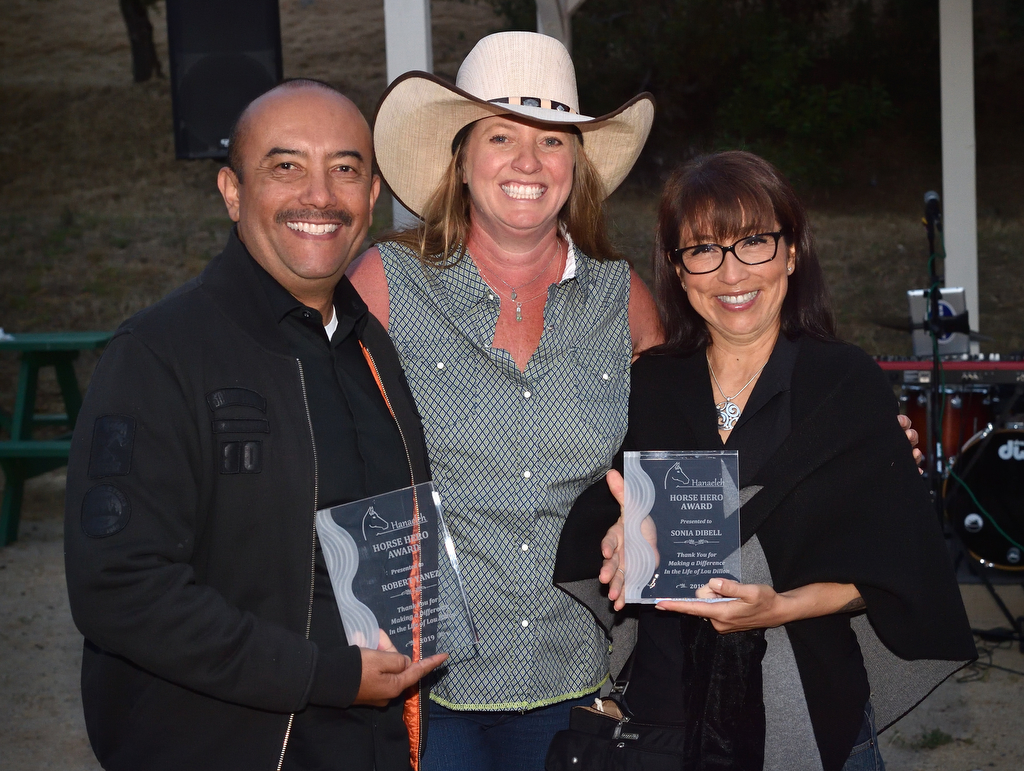
Kelley Chaplin, fundraising coordinator for Hanaeleh, center, after presenting Los Angeles Police Officers Robert Yanez, left, and Sonia Dibell with the Horse Hero Award.
Photo by Steven Georges/Behind the Badge
But there was one last place on the list to call: Hanaeleh Horse Rescue & Advocacy in Trabuco Canyon.
“We said yes,” said Kathi Kruse, a Hanaeleh board member. At this point, Lou Dillon had been with the county shelter for almost two weeks. “He was in danger of being euthanized. We made a quick decision.”
It took about a week for the rescue to make the necessary arrangements to transport Lou Dillon to Trabuco Canyon. While Lou Dillon was at the shelter, Dibell and Yanez looked after the horse as much as they could.
“We stopped by several times a week to feed him carrots, apples, and feed,” Yanez said. “Lou Dillon finally became comfortable with us and even smiled from time to time when we hung out.”
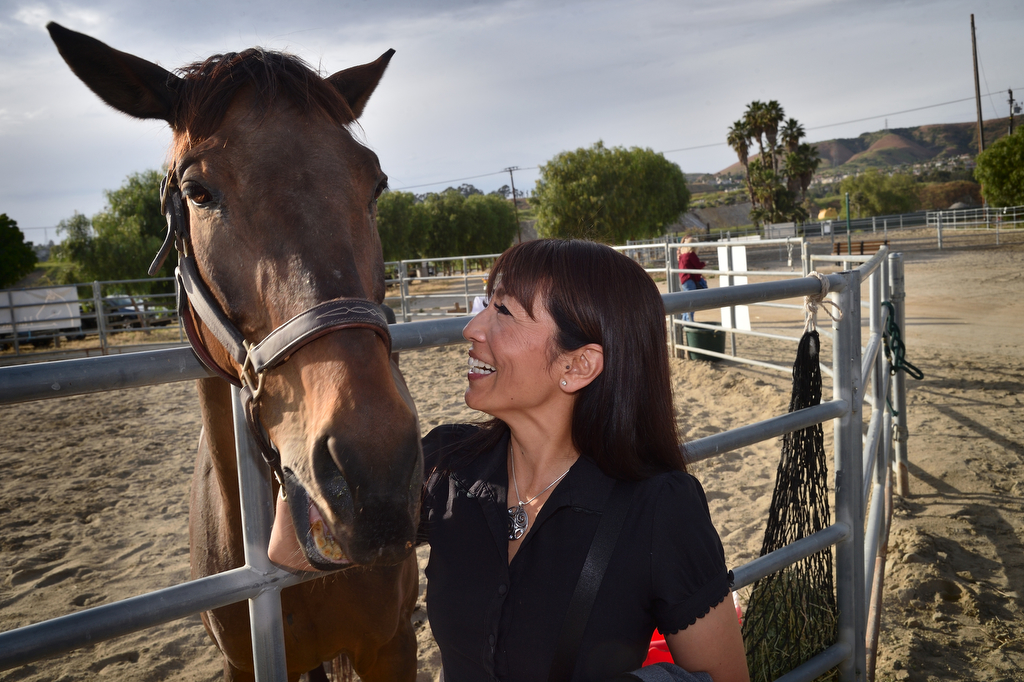
Los Angeles Police Officer Sonia Dibell greets Lou Dillon, a horse found wandering the streets of Watts she helped rescue, as Dibell arrives for a Hanaeleh fundraiser in Orange. She and her partner, Officer Robert Yanez, were presented with Hanaeleh’s Horse Hero Award.
Photo by Steven Georges/Behind the Badge
Kruse said she also visited Lou Dillon before he could be transported. Hanaeleh rescued a second horse that was also in danger of being euthanized. Both horses were between 25 and 30 years old and very emaciated (Lou Dillon was 600 pounds underweight). Sadly, the second horse, who had been at the shelter longer, didn’t make it.
“Horses, for as big as they are, are very delicate animals,” she said. “Her poor body didn’t make it.”
But Lou Dillon did survive.
“Lou Dillon is doing great,” Kruse said. “He loves his food. He’s a perfect gentleman.”
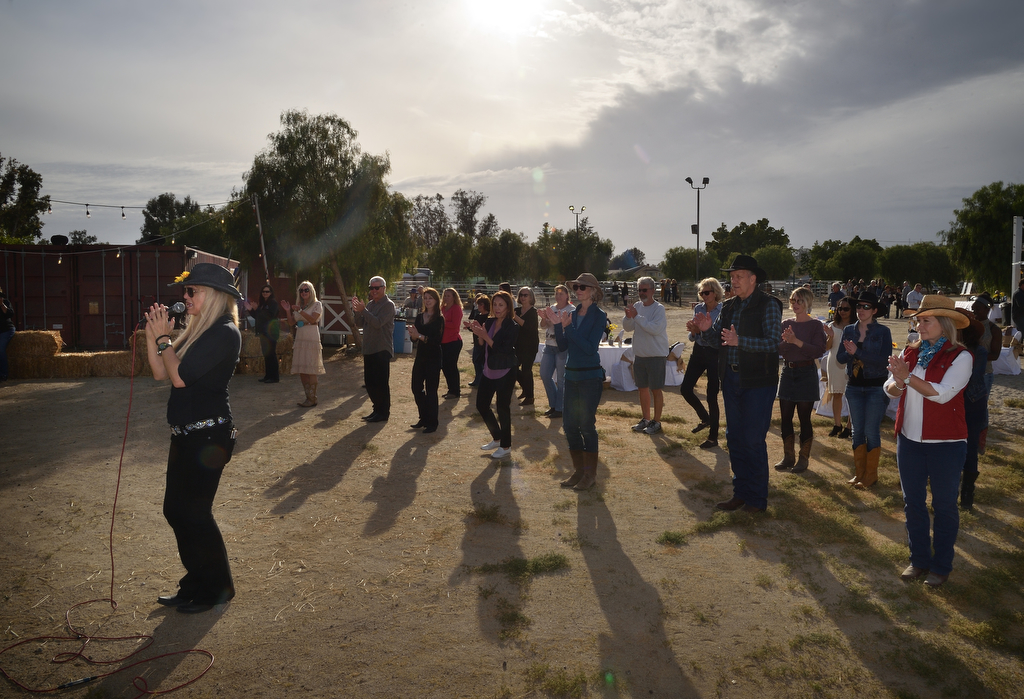
Supporters of Hanaeleh, an Orange County organization that rescues and rehabilitates abused and neglected horses, participate in a line dance during a fundraiser at the Mara Brandman Event Center in Orange.
Photo by Steven Georges/Behind the Badge
Kruse said about 50 percent of the time their rescue horses end up staying at the sanctuary rather than being adopted. It depends on age, medical condition, and how well rehabilitation goes.
“We take good care of them and they want for nothing,” she said. “Lou Dillon will probably be a sanctuary horse.”
Dibell has visited Lou Dillon at the rescue with his favorites: carrots and apples. She also brought horse food donated by one of her close friends.
“We went to Costco and bought in bulk,” Dibell said. “We took a small collection at the station and we were able to get Lou Dillon those things.”
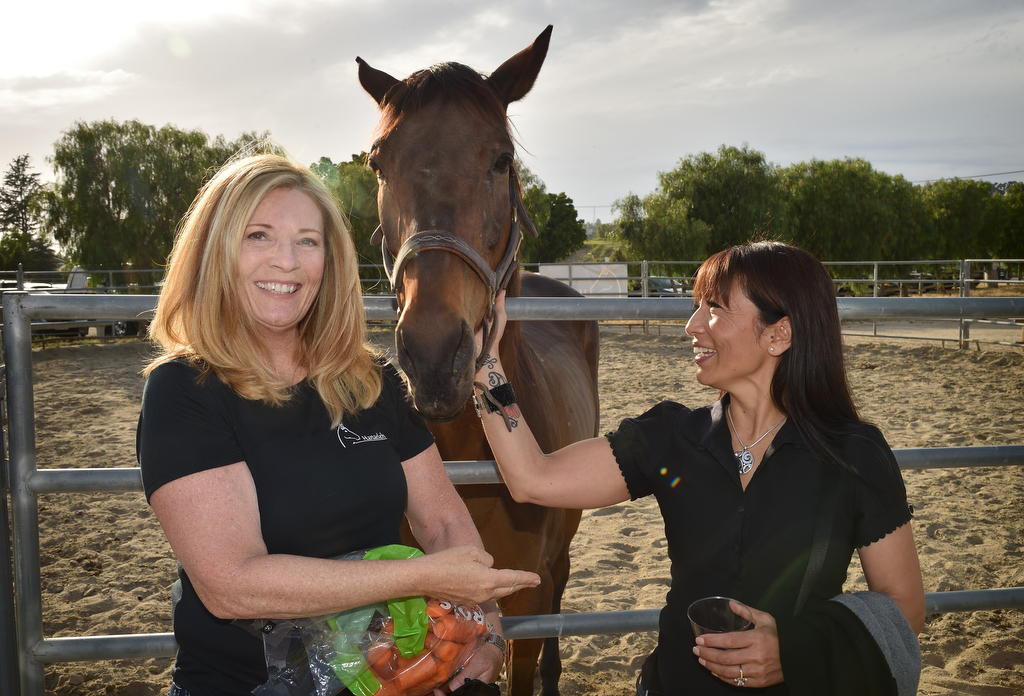
Kathi Kruse of Hanaeleh, left, and Los Angeles Police Officer Sonia Dibell with Lou Dillon, a horse that was rescued after being found wandering the streets of Watts.
Photo by Steven Georges/Behind the Badge
She recently saw him again at the rescue’s annual fundraiser on May 18 at the Mara Brandman Event Center in Orange, along with a few other rescue horses. Dibell plans to keep visiting Lou Dillon at the rescue.
“The public has this really negative view of law enforcement,” Kruse said. “This is so positive. I really learned how great police officers are during this experience I had with them.”
 Behind the Badge
Behind the Badge
